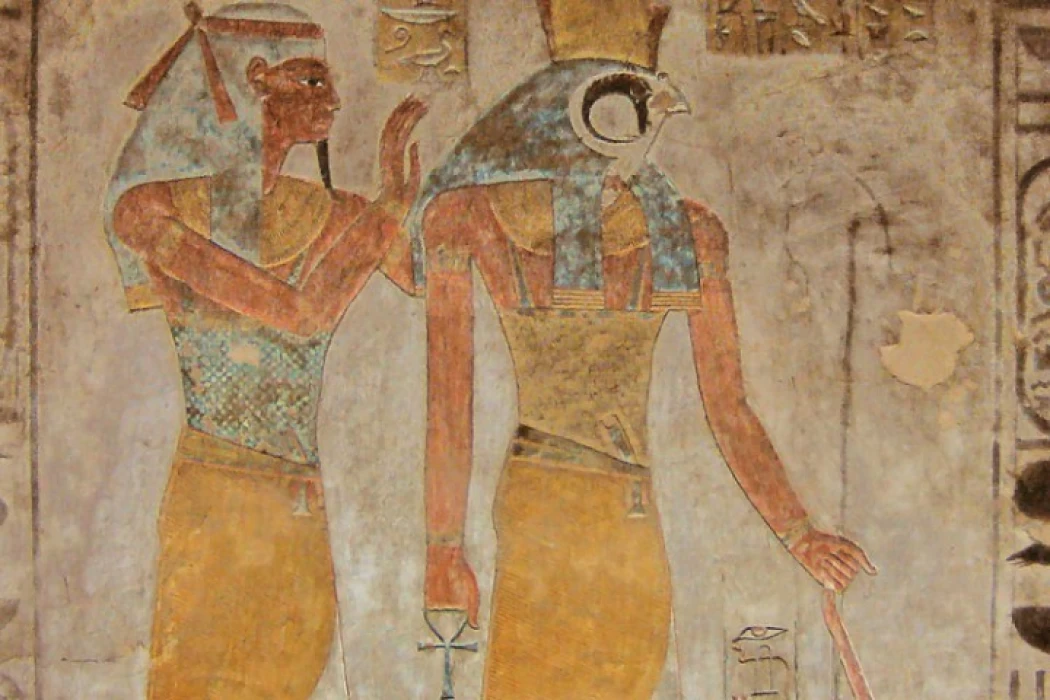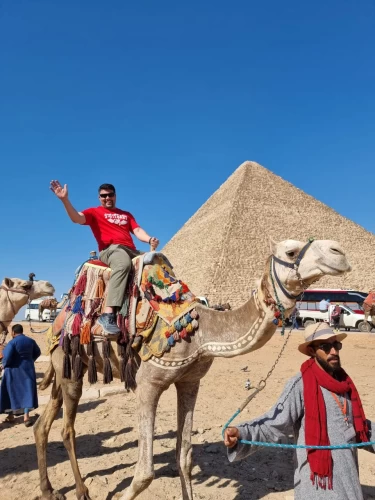
Dios Geb | Dios de la tierra
Geb era considerado el príncipe de los dioses egipcios, esta deidad simbolizaba la fertilidad como el comienzo de la vida. Por otro lado, se encargaba de suministrar los minerales y piedras preciosas que se encuentran bajo tierra.
La deidad estaba representada por un hombre de piel verde, su color simbolizaba la tierra del Nilo, la vegetación y la vida, también se visualizaba con un ganso en la cabeza ya que esta ave es su personificación.
Sus padres fueron Tefnut y Shu quienes le cedieron el trono dejándolo como heredero, luego de la conspiración de Apophis, quien era una serpiente que representaba el mal, lo que lo convirtió en el tercer faraón.
Geb tenía una hermana llamada Nut, que era su esposa, esta unión representaba a una de las parejas que componían la Enéada Heliopolitana, de esa relación nacieron cuatro hijos: Osiris, Isis, Seth y Nephthys.
El dios de la tierra, también se podía encontrar tendido en el suelo con su pene erecto, tratando de alcanzar a su esposa sin triunfar, ya que su padre se encargaba de separarlos, se podía ver a Shu en medio de los dos, representando los valles y montañas que los alejan.
Al dominar el inframundo, Geb se encargaba de mantener cautivas las almas que no habían sido justas, representando la caja del sarcófago, mientras que Nut era la tapadera de la misma, encarnando así al guardián de las puertas del cielo.
Geb was considered the prince of the Egyptian gods, this deity symbolized fertility as being the beginning of life. On the other hand, it was responsible for supplying the minerals and precious stones found underground.
The deity was represented by a man with green skin, its color symbolized the land of the Nile, the vegetation, and life, it was also visualized with a goose on its head since this bird is its personification.
His parents were Tefnut and Shu who gave him the throne leaving him as heir, after the conspiracy by Apophis, who was a serpent who represented evil, which made him the third pharaoh.
Geb had a sister named Nut, who was his wife. This union represented one of the couples that made up the Heliopolitan Ennead, from that relationship, four children were born: Osiris, Isis, Seth, and Nephthys.
The earth god, could also be found lying on the ground with his erect penis, trying to reach his wife without triumph, since his father was in charge of separating them, Shu could be seen in the middle of the two, representing the valleys and mountains that keep them away.
By dominating the underworld, Geb was in charge of keeping captive the souls that had not been just, representing the sarcophagus box, while Nut was the cover of it, thus incarnating the guardian of the gates of heaven.
Geb is shown as a man on the earth, with his sister Nut, the sky goddess, standing atop him and covered in stars. The rest of the scene shows their parents Shu, the air god, raising his arms, and Tefnut, the moisture goddess, mentioned only by name, and the god Ra riding the sun boat.
«Geb» is sometimes depicted in the form of a human carrying a goose on his head, and his name is written in two syllables «goose and man», where the man is pronounced as the letter «b». As for the goose that the ancient Egyptians chose to write the name «Jeb», it is a Nile goose that was domesticated by the ancient Egyptians in the early days.
The god «Geb» had beneficial qualities and characteristics, as green grains came out of his rib, and plants grew on his back. «Geb» was the source of fresh water, and the source of everything the earth produced, so it was directly linked to the fertility of the earth and the gate.
The power of «Geb» sometimes had harmful aspects, as earthquakes occur when he laughs, and he can prevent his blessings in times of drought, or in arid regions, and because of its importance as a distress to the earth, it may represent a grave.
«Geb» was depicted in many scenes and inscriptions in temples, and it was also associated with some characteristics of popular religion, as it was associated with healing, and its ability to heal was great, so it was supplicated to in some paragraphs in order to heal from a scorpion sting.
Although he did not have a major cult or belief of his own, he was depicted in many scenes and inscriptions in temples, and was also associated with some characteristics of popular religion, as he was associated with healing, and his ability to heal was great, so he was supplicated to in some paragraphs in order to heal from Scorpion sting.















